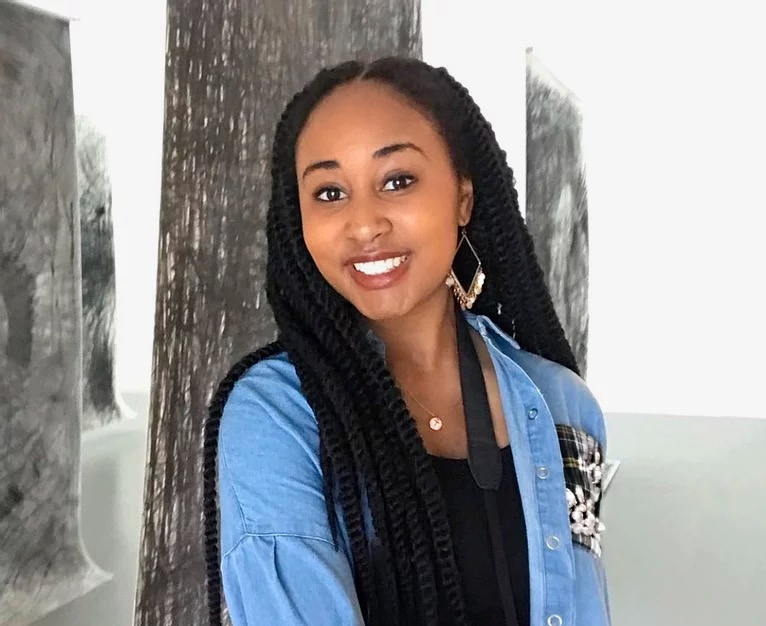Master’s Student Examines Effects of Slavery in History of the White House Through Fellowship
Tianna Mobley (C’20), a first-year master’s student in the Department of History’s Global, International & Comparative History program, is supplementing her research at Georgetown through a fellowship with the White House Historical Association. The double Hoya is working to enrich and amplify the project “Slavery in the President’s Neighborhood” which examines the past atrocities that are interwoven in our nation’s history.
The Path Towards History
As an undergraduate student, Mobley first became interested in the history of slavery in the United States after taking the course “Slavery in North America” with Adam Rothman, a professor in the history department.
After concluding the course, she worked with Rothman on a research project transcribing historical documents for the GU272 project, which is part of the university’s working group on Slavery, Memory, and Reconciliation. She completed this before studying abroad in her junior year.
“Studying abroad in Scotland solidified my passion for history of slavery,” says the alumna. “I received a Penner Family Experiences Grant during my junior year and completed an independent research project on the Trans-Atlantic activism of Frederick Douglass and Ida B. Wells-Barnett.”
As part of her African American Studies minor, Mobley enrolled in Marcia Chatelain’s course “Race and Racism in the White House,” which she says has directly helped her in her current research for the White House Historical Association.
Reconciling with the Past
Slavery in the President’s Neighborhood was started in 2016 after Michelle Obama famously said that she “wakes up every morning in a house built by slaves.” The project aims to bring awareness to slavery’s role in the foundation of the United States through its involvement in the erection of one of the most prominent symbols of freedom and democracy in the nation: the White House.
“I’ve never viewed the White House as a space that was necessarily representative of people who look like me,” says Mobley. “I hadn’t considered studying White House history until this project came about, but I was eager to become involved once I learned of it.”
As a fellow, Mobley researches and authors publications for the project’s website. Her latest article, Prominent African American Women and the White House, traces the history of African American women in the White House, concluding with Michelle Obama as the first Black First Lady of the United States and what this meant for her and her daughters.
Though she has had to conduct her research remotely due to the COVID-19 pandemic, Mobley thoroughly details the experiences of Black women such as Sojourner Truth, Elizabeth Keckley, Rosa Parks and Maya Angelou around this paradoxical monument to freedom. The graduate student will be hosting a virtual Q and A session discussing her findings as part of the “Stories of Resistance and Perseverance” Facebook Live event on February 9, 2021.
In her next article which will be released in March of 2021, Mobley plans to research Ida B. Wells-Barnett, the impact of her work on anti-lynching laws and how that relates to White House history.
Mobley says that this experience has helped develop her skills as a scholar and a researcher, which she hopes to apply to a Ph.D. program on her path to becoming a professor herself.
Chatelain, who has been a mentor to Mobley throughout her time at Georgetown, says that “it’s so exciting to see Tianna participate in this type of historical inquiry because it really shows that the humanities can be deployed for the common good and that historians can contribute to public service.”
“Tianna is such a thoughtful student, and I am really proud of the way she has used her interest in history to tell fuller, more accurate stories about that past,” she continues. “Telling the truth is unfortunately a courageous act right now because the public has been flooded with lies about the nation’s origins, its sins, and its communities. I am so happy that emerging scholars like Tianna are interested in doing this work.”
